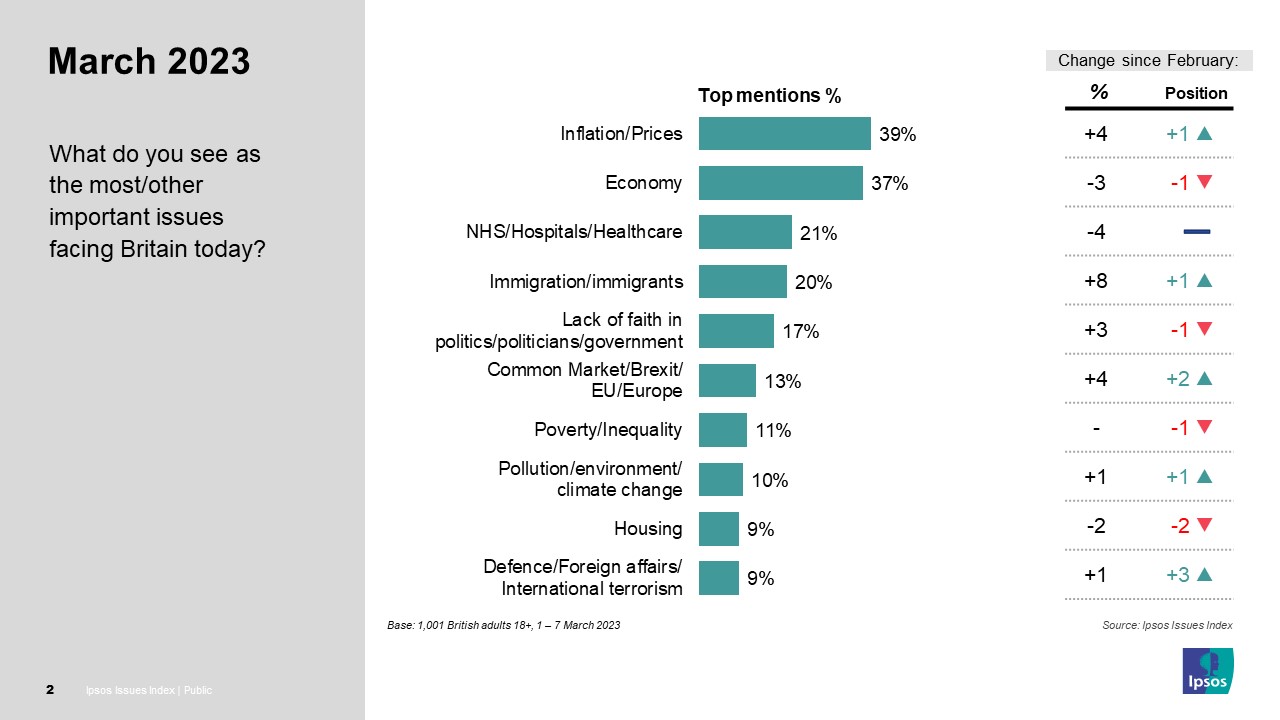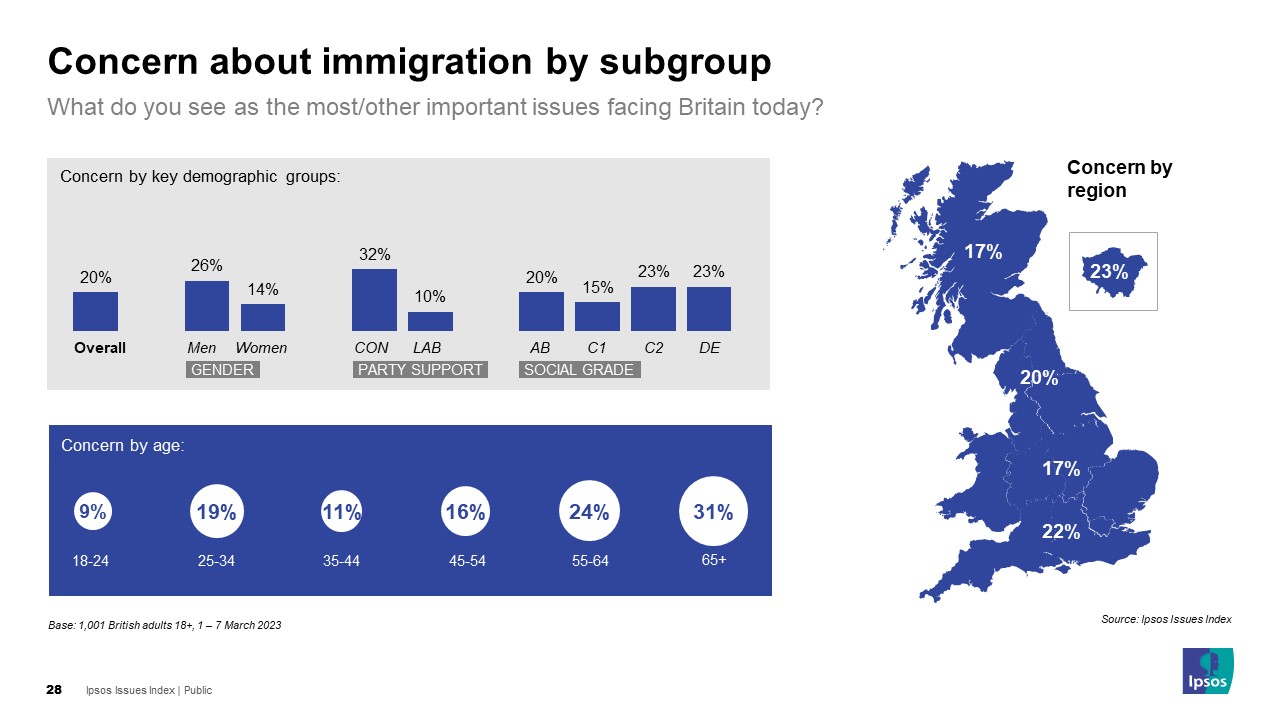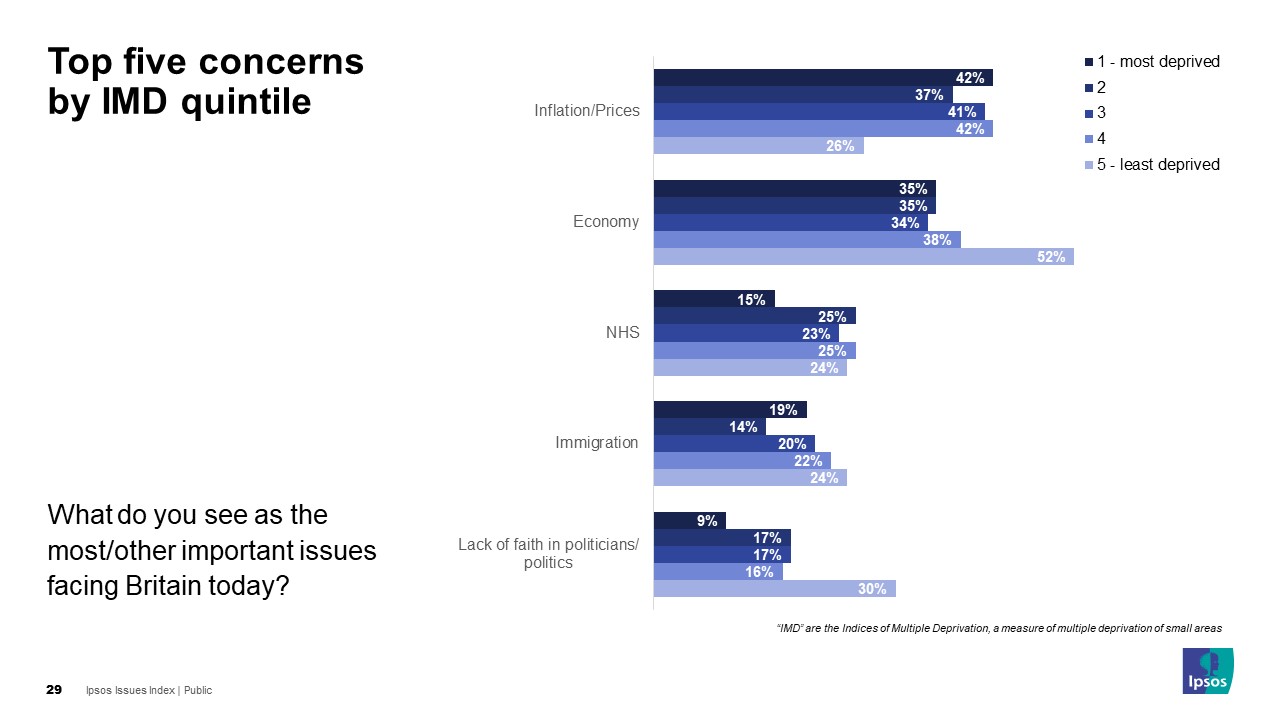Immigration rises up Britons’ key concerns but economic worries still top the agenda
- Around four in ten Britons name each of inflation and prices or the economy as an important issue for Britain
- One in five see immigration as a big issue for the country, an increase of eight points since February
The March 2023 Ipsos Issues Index reveals that the economy and inflation remain the pre-eminent concerns facing the country, although there has been an increase in worry about immigration.
Thirty-nine per cent of Britons say inflation and prices are a big concern, up four points from February. Concern about the economy has fallen slightly but it remains a similarly big issue, on 37% this month. These two worries dominate public concern: each are seen as the single biggest issue for Britain by a quarter of the public (24%). By contrast just six per cent see immigration as the single biggest issue and for the NHS this figure is four per cent.
The NHS and immigration are seen as the joint-third biggest issues facing the country this month – each is mentioned by around one in five Britons. While the proportion mentioning the NHS has fallen from February, there has been a sharp jump in concern about immigration, rising by eight points since last month.
Concern about a lack of faith in politicians and politics has also slightly risen since February; at 17% this month it is the fifth biggest concern.
Elsewhere in the ranking, just two per cent of the British public name unemployment as one of the biggest issues facing the country. This is the lowest score for this concern since the Issues Index began in 1974 and has only been recorded once before in September 2022.

The jump in concern about immigration has been driven by increases among specific demographic groups:
- A third (32%) of Conservative Party supporters mention immigration as a concern, close to double the level of concern in February (18%). By contrast, just 10% of Labour supporters cite it in March, a slight increase from 6% in February.
- Older age groups have also seen a significant increase: 31% of those aged 65 and above see immigration as a big issue this month, up from 16% in February. Among 18-34 year olds 15% mention immigration, up from the February score of 8%.

The results this month have also been analysed against the Indices of Multiple Deprivation (IMD), a measure of relative deprivation assigned to small areas within the country.
Perceptions of the biggest issues for Britain are especially different for those living in the top 20% least deprived areas of the country: this group are almost half as likely to see inflation as a big concern compared with residents of the four more deprived quintiles and are also significantly more likely to cite the economy as an issue. They are also twice as likely as most other quintiles to say that a lack of faith in politicians and politics is a big concern for the country, and three times as concerned as those living in the most deprived quintile.

Mike Clemence, a researcher at Ipsos, said:
We have seen a rise in concern about immigration among some groups this month – especially Conservative supporters and older people, but overall the public focus remains most firmly concentrated on economic issues.
Our analysis of concerns against the relative deprivation of different parts of the country also reveals strongly divergent views. Those living in the least deprived areas of Britain are much less likely to see inflation and prices as a concern, but are far more worried about the economy and a lack of faith in politicians.
Technical note
Ipsos' Issues Index is conducted monthly and provides an overview of the key issues concerning the country. Ipsos interviewed a representative sample of 1,001 adults aged 18+ across Great Britain. The answers are spontaneous responses, and participants are not prompted with any answers.
Ipsos’ telephone omnibus was used for this survey. Interviews were conducted between 1 and 7 March 2023 across Great Britain. Data are weighted to match the profile of the population.



